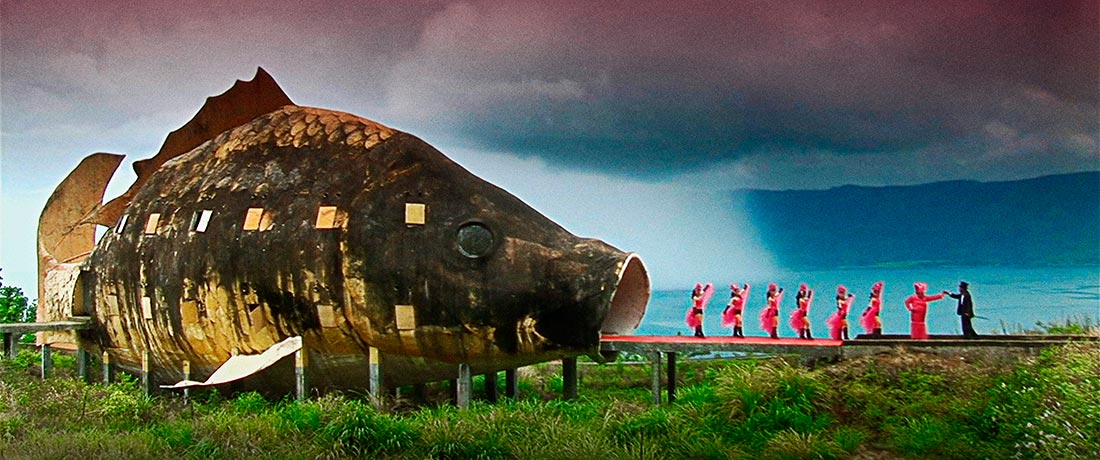
In a country where killers are celebrated as heroes, the filmmakers challenge unrepentant death squad leaders to dramatize their role in genocide. The hallucinatory result is a cinematic fever dream, an unsettling journey deep into the imaginations of mass-murderers and the shockingly banal regime of corruption and impunity they inhabit.
Anwar Congo and his friends have been dancing their way through musical numbers, twisting arms in film noir gangster scenes, and galloping across prairies as yodeling cowboys. Their foray into filmmaking is being celebrated in the media and debated on television, even though Anwar Congo and his friends are mass murderers.
Medan, Indonesia. When the government of Indonesia was overthrown by the military in 1965, Anwar and his friends were promoted from small-time gangsters who sold movie theatre tickets on the black market to death squad leaders. They helped the army kill more than one million alleged communists, ethnic Chinese, and intellectuals in less than a year. As the executioner for the most notorious death squad in his city, Anwar himself killed hundreds of people with his own hands.
Today, Anwar is revered as a founding father of a right-wing paramilitary organization that grew out of the death squads. The organization is so powerful that its leaders include government ministers, and they are happy to boast about everything from corruption and election rigging to acts of genocide.
The Act of Killing is about killers who have won, and the sort of society they have built. Unlike ageing Nazis or Rwandan génocidaires, Anwar and his friends have not been forced by history to admit they participated in crimes against humanity. Instead, they have written their own triumphant history, becoming role models for millions of young paramilitaries. The Act of Killing is a journey into the memories and imaginations of the perpetrators, offering insight into the minds of mass killers. And The Act of Killing is a nightmarish vision of a frighteningly banal culture of impunity in which killers can joke about crimes against humanity on television chat shows, and celebrate moral disaster with the ease and grace of a soft shoe dance number.

Born 1974, Texas, USA. Joshua Oppenheimer has worked for over a decade with militias, death squads and their victims to explore the relationship between political violence and the public imagination. Educated at Harvard and Central St Martins, London, his award-winning films include The Globalization Tapes (2003, co-directed with Christine Cynn), The Entire History of The Louisiana Purchase (1998, Gold Hugo, Chicago Film Festival), These Places we’ve learned to call Homes (1996, Gold Spire, San Francisco Film Festival) and numerous shorts. Oppenheimer is Senior Researcher on the UK Arts and Humanities Research Council’s Genocide and Genre project and has published widely on these themes.
